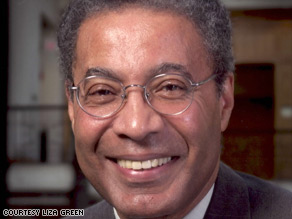State lawmakers bet gambling can help with budgets
State lawmakers bet gambling can help with budgets
Published - Jan 25 2009 02:24PM EST | AP
By GREG BLUESTEIN - Associated Press Writer
A tell-tale sign America's chips are down: States are increasingly turning to gambling to plug budget holes.
Proposals to allow or expand slots or casinos are percolating in at least 14 states, tempting legislators and governors at a time when many must decide between cutting services and raising taxes.
Gambling has hard-core detractors in every state, but when the budget-balancing alternatives lawmakers must consider include reducing education funding or lifting sales taxes, resistance is easier to overcome, political analysts said.
"Who wouldn't be interested if you're a politician who needs to fund programs?" said Bo Bernhard, director of research at the International Gaming Institute at the University of Nevada, Las Vegas _ a government-funded program.
While gambling has not been immune from the recession, it has held up relatively well compared with states' other revenue streams, such as income and sales taxes. This helps explain why past industry growth spurts have been preceded by economic downturns, experts said.
For example, Rhode Island opened the country's first racetrack casino in 1992, and four states soon followed. More recently, states faced with sagging revenues during the 2001 recession joined multistate lotteries such as Powerball and gave more leeway to Native American tribes seeking to expand their casinos.
Analysts say the latest round of gambling initiatives are noteworthy in volume and ambition _ a sign that the industry aims to capitalize on states' badly bruised economies.
"From the gambling industry's point of view, this is their big chance," said Earl Grinols, an economics professor at Baylor University who specializes in gambling.
Ohio's casino advocates, including lobbyists working for Penn National Gambling Inc., are pushing a variety of large-scale development projects. In Georgia, a developer working with Dover Downs Inc., wants to transform a blighted section of downtown Atlanta with a 29-story hotel that would attract tourists with more than 5,500 video lottery terminals.
The developer pitching the $450 million Atlanta project, Dan O'Leary, estimates $300 million a year in revenues would be funneled to the state, helping to pay for a popular lottery-funded scholarship that provides in-state college tuition for students with "B" averages.
Even Hawaii, which along with Utah is one of two states without a lottery or other form of legalized gambling, may consider a change. Aides to Gov. Linda Lingle, long an opponent of gambling, say she is open to discussing it as a way to close the state's growing budget gap.
Gambling proponents are quick to tout its bells and whistles: a $54 billion annual industry that employs more than 350,000 people, with most state gambling revenues coming from lotteries, racetracks and betting devices such as slot and video poker machines. Twelve states reap tax money from full-fledged casinos, and 23 others have casinos on Native American reservations, which generally do not pay taxes to states.
But while advocates argue that casinos will help attract jobs and revitalize downtrodden areas, religious groups and other critics fear gambling has a disproportionately negative impact on lower-income people, and does not provide long-term economic growth.
They point to research that shows casinos attract crime, foster gambling addiction problems and divert money from other businesses.
"We've got gambling in 48 states, and you'd think if it worked, you wouldn't have budget problems or education problems," said Tom Gray, a field director for StopPredatoryGambling.org.
Many of the gambling proposals seek to expand footholds in states that already allow limited gambling.
Kentucky's House speaker had proposed allowing video gambling terminals at the state's racetracks, and legislators in New Hampshire, New York and Texas are seeing proposals this year to allow similar gambling terminals at their tracks. Casino advocates plan to push for casino-style gambling in hurricane-ravaged Galveston, Texas, as well.
Lawmakers in other states are talking about reversing hard-fought crusades to tighten restrictions on gambling.
Nine years after South Carolina lawmakers outlawed video poker, state Sen. Robert Ford is fighting to make it legal again. Since July, lawmakers have cut roughly $1 billion from the state's budget to address revenue shortfalls.
"Gambling ain't no blight on society," Ford said.
In Ohio, where voters repeatedly have rejected ballot proposals to expand gambling, Gov. Ted Strickland said he is willing to listen to proposals to help close a $7 billion shortfall in the next two-year budget.
While analysts have long considered gambling to be almost recession-proof, the economic downturn has seen layoffs, declining revenues and falling stock prices hit casinos. State-run lotteries are faring better, though: More than half of the states with lotteries have reported rising sales over the past six months.
Amid the rush to embrace gambling because of short-term budget problems, some experts say a long-term perspective is needed.
After gambling is approved and revenues are allocated, it's not something lawmakers are likely to reconsider down the road _ no matter how much economic conditions may improve.
"Once you have legalized a form of gambling, the moral argument draws away and gambling is looked at as a cost-benefit analysis," said I. Nelson Rose, a gambling law professor at Whittier Law School in Orange County, Calif. "So many states have opened those doors now."




 Have you ever had a conversation with someone and when you started to say something, they jumped in - cut you off and answered you before you finished saying what you had to say? My question is - how can you answer me when you didn't hear what I had to say?
Have you ever had a conversation with someone and when you started to say something, they jumped in - cut you off and answered you before you finished saying what you had to say? My question is - how can you answer me when you didn't hear what I had to say?